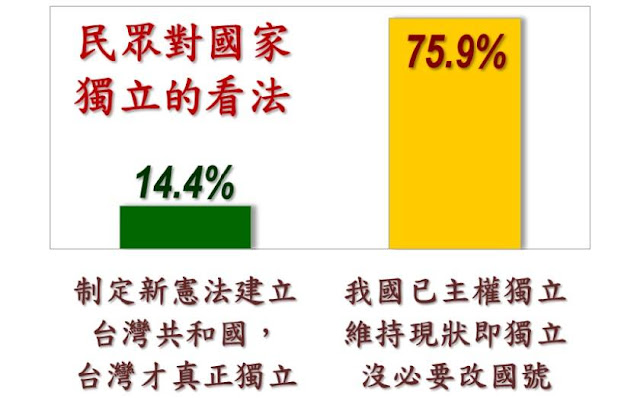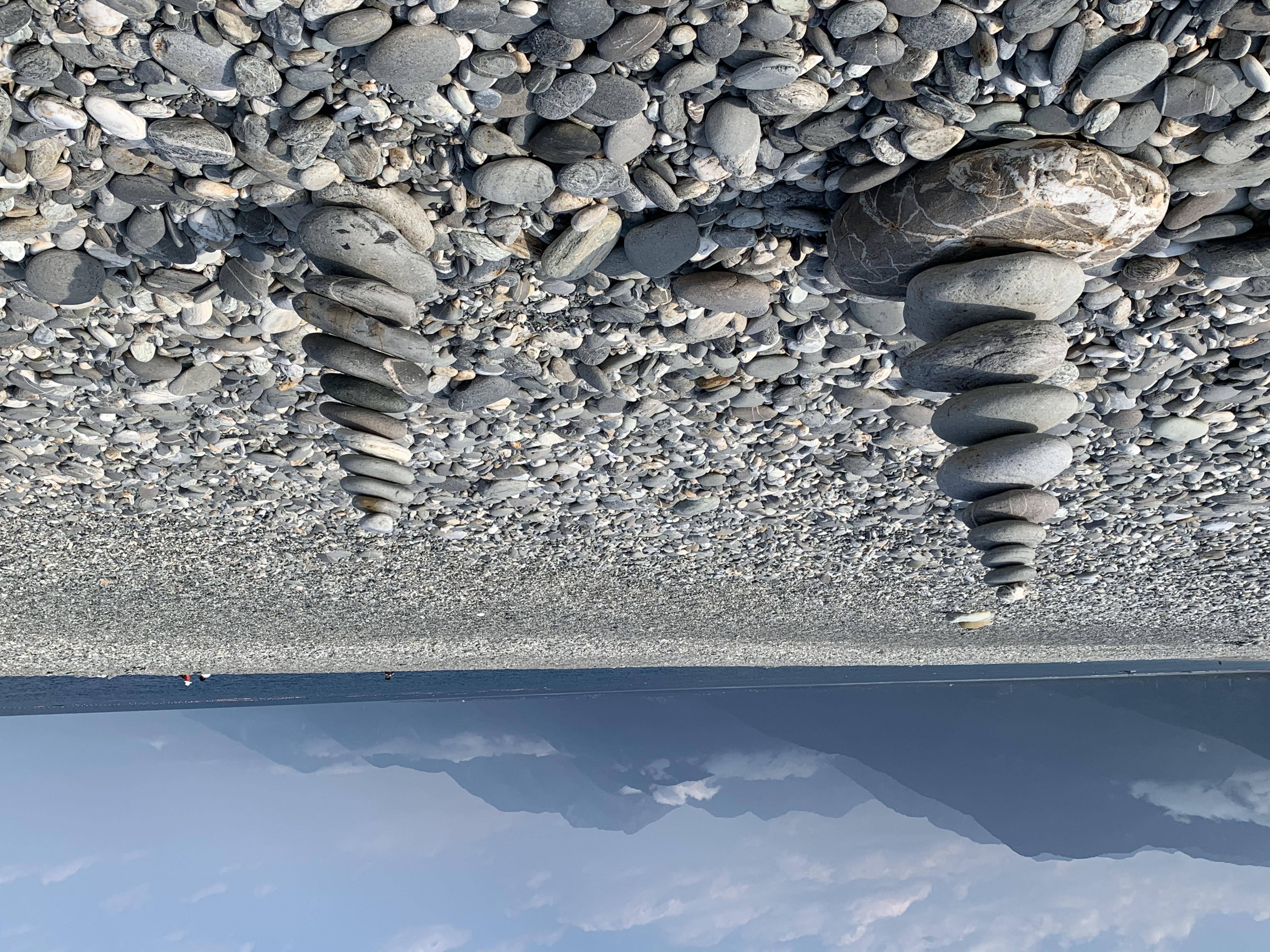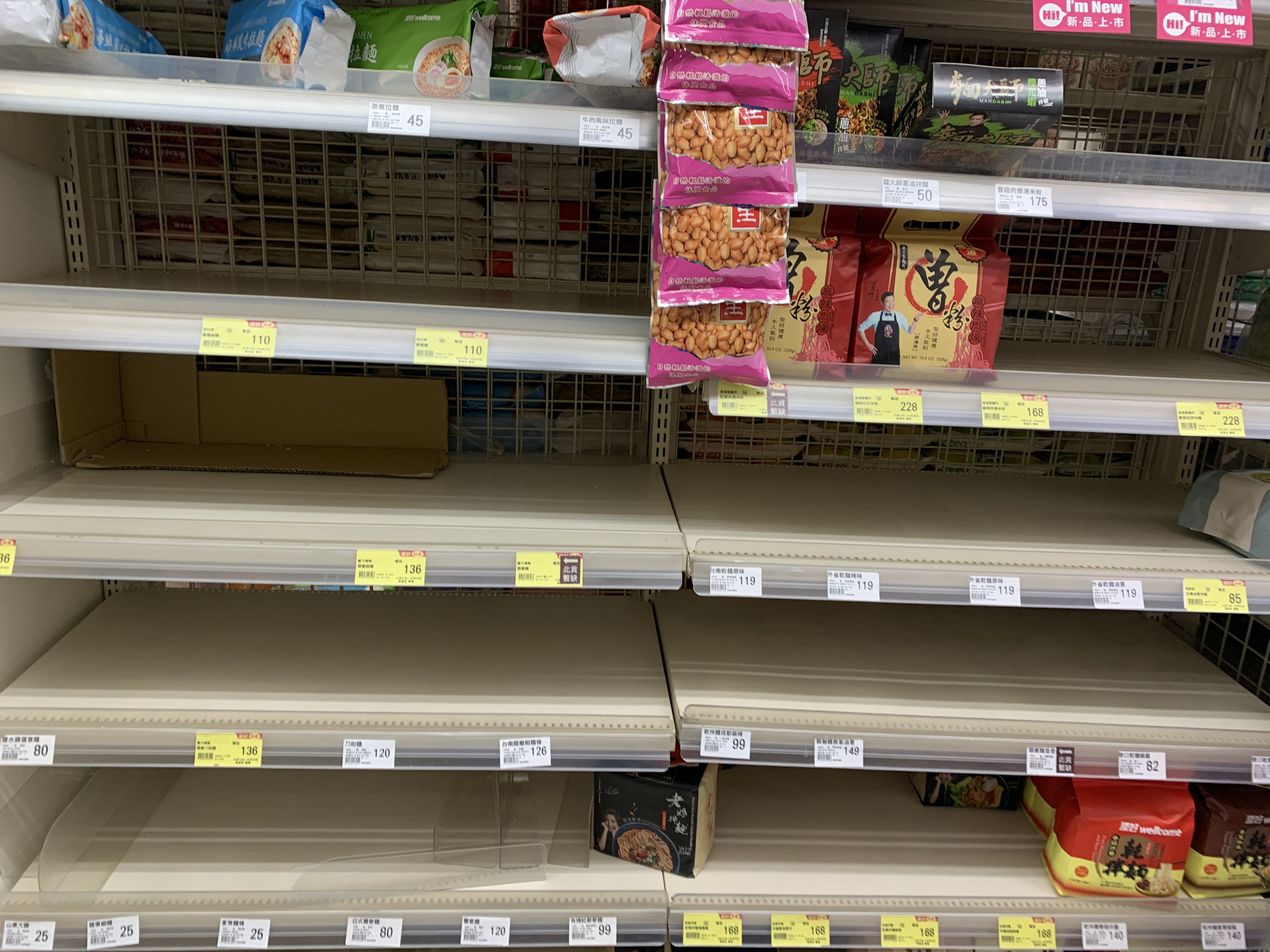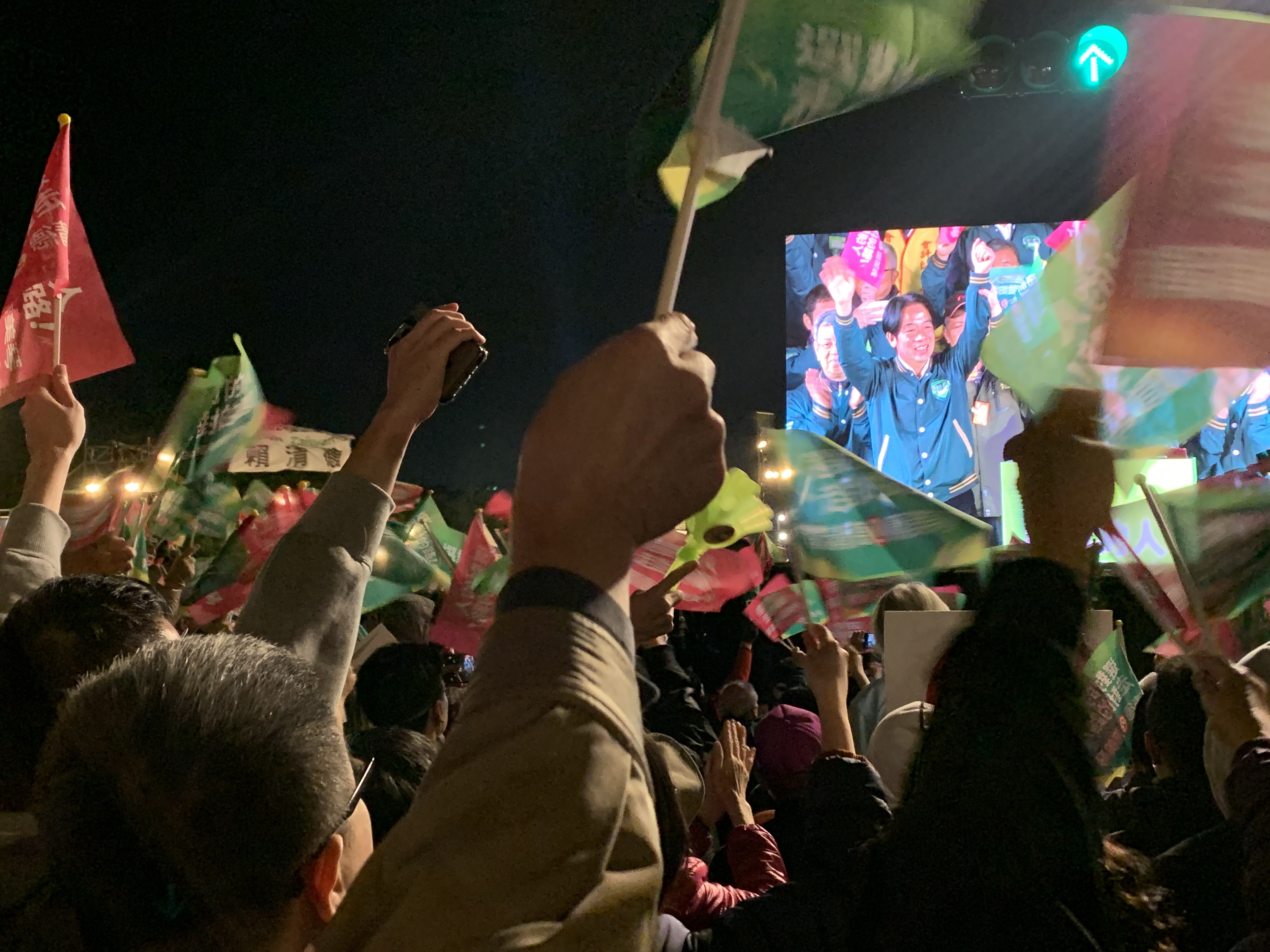
I usually only go to one big rally per election season, because the big ones are exhausting. It can be hard to leave depending on where you are, so attending may be a real commitment. If I get the chance I might seek out some local rallies for legislative candidates, because I can bail at any time. The presidential ones, though? I know people who rally-hop, but I don't have the energy for it.
You can see more live commentary and pictures on my Twitter thread. I updated it until the crowd got too big and I lost connectivity.
This year, I picked the big DPP rally on Ketagalan Boulevard, just two days before the election. Ko Wen-je's TPP rally will be held there tomorrow, I believe -- I'm not sure if they just happened to snag that date, or if the ruling party is being sporting in letting someone else (who is unlikely to win) have the big downtown venue the night before the race.
Speakers at the rally estimated the crowd at around 120,000, and that seemed accurate. It was impossible to reach Ketagalan Boulevard itself by 6:30pm; I was somewhere on the circle around Jingfu Gate. It was a pleasure being around people with similar politics; I live in a very dark blue area and while I appreciate being confronted with other perspectives, it can also be tiring. 
It had all the bells and whistles one can expect from a rally...literally. Candidates speak and then the crowd is led in a chant for their election ("凍蒜!"). The music is carefully orchestrated to follow the tone of whatever's being said; I'm not sure if it's all carefully timed beforehand, or if they have a DJ who switches up the generic cinematic orchestral background depending on whether the audience is meant to be energized, touched, furious or elated.
I did notice they used the same sequence of villainous chords whenever a speaker mentioned Chiang Kai-shek, Ma Ying-jeou, Xi Jinping or Han Kuo-yu. Each one of them, I suppose, is just a different version of Darth Vader.
Actual presidential candidate Hou Yu-ih was barely mentioned, if he came up at all. I'm not sure if the thought process was to (mostly) refrain from attacking direct opponents to focus on the DPP's achievements over the past 8 years, if they don't see Hou personally as much of a threat, or if people like Ma have made themselves easier bait from dumbass comments they've made recently. Ma, famously, gave an English-language interview in which he said that Taiwanese should "trust" Xi Jinping. The "trust" comment has been setting the news cycle on fire, but I found his comments that "unification...is acceptable to Taiwan" because it's what "the constitution says", and that Taiwanese people "might be interested" in peaceful, democratic unification (they are not, but perhaps Ma has been unwisely reading too much Bonnie Glaser). 
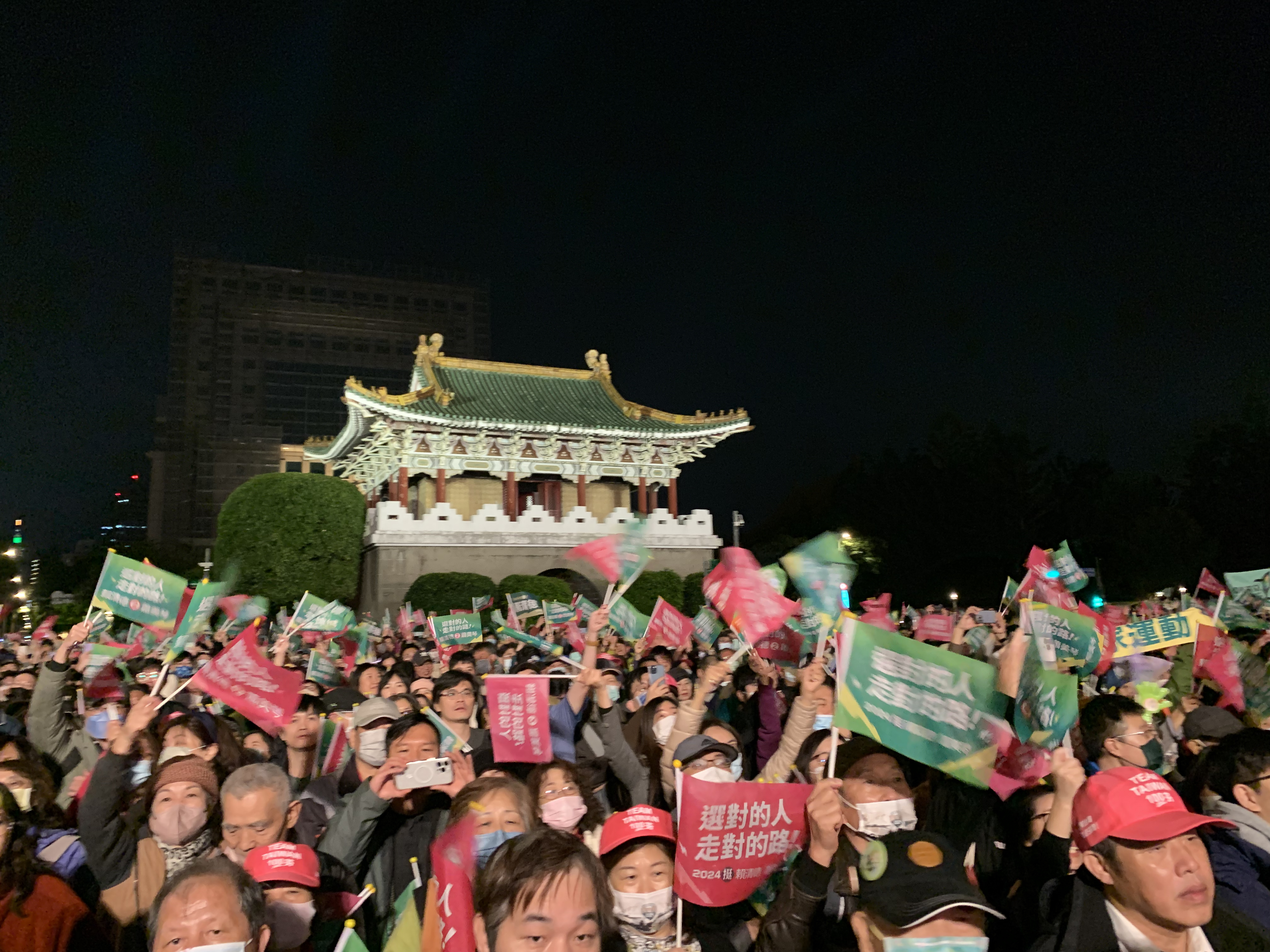
The idea that because the Republic of China constitution can be interpreted that way -- an interpretation I happen to think is inaccurate -- that unification is therefore "acceptable" to Taiwan is a total dismissal of what Taiwanese people actually want. No wonder just about everyone on stage Thursday night used Ma as a rhetorical punching bag. Even KMT candidates don't seem too pleased about Ma running his big stupid mouth.
Giving Ma a thorough thrashing constituted most of the 'negative' talk, with the exception of former premier Su Chen-chang 蘇貞昌, who played the role of attack dog for the night. He's very good at it. 
The rally began with a full slate of Taipei city legislative candidates, including Hsieh Pei-fen 謝佩芬, Kao Chia-yu 高嘉瑜, Wang Shih-chien 王世堅 and my personal favorite, Miao Po-ya 苗博雅. A quick run-down: Hsieh has impressive academic chops, ran a losing race in Da'an against Lin Yi-hua, and is now running in Zhongshan/North Songshan. Kao was the youngest sitting member of the National Assembly back in the early 2000s and served on the Taipei City Council. She's known for being frequently in the media (or a target of the media), and is running in Nangang/Neihu. Wang gave a bombastic speech in Taiwanese; he's a former legislator turned city councilor, running in Datong (where he is also from; his grandfather and father were killed in 228 and arrested during the White Terror, respectively). Wang is famous for making weird bets that he always makes good on, and for apparently looking like Chucky.
Miao got the biggest response from the crowd: they absolutely went nuts for her. I'm not surprised: she helped turn the unwinnable Da'an/Wenshan legislative seat into a fiercely competitive race. I've stanned her since before most people had heard of her, and now I stan her even more. I'm hoping to talk more about Miao tomorrow, before the moratorium on election talk, but suffice it to say, she's fantastic.
The DPP focused on its successes, with both former vice president Chen Chien-jen 陳建仁 and health minister Chen Shi-chung 陳時中, who lost the Taipei mayoral race, talk about Taiwan's world-class pandemic response. Gender and marriage equality also featured, with lots of rainbow flags among the pink and green campaign flags. Party list legislative candidate Chen Jun-han 陳俊翰, who is both a lawyer and disabled, gave a touching speech about how his disability has helped him see the value of life, and that he chose to accept the call from the DPP because he believes Lai Ching-te will build a "just" and "warm" Taiwan.
Much of the rest of the rally was about linking Lai to Tsai -- essentially, a vote for Lai is a vote for four more years of Tsai, or at least Diet Tsai (my words, not theirs). Fire EX performed Child of Taiwan (Tai-oân Kin-á), which has a direct musical link to their hit Island Sunrise 島嶼天光 and Stand Up Like A Taiwanese, which I believe references a line from Chthonic's Supreme Pain for the Tyrant. Speakers emphasized Taiwan's comparatively progressive society in Asia, how it leads Asia and even the world in freedom and democracy, and is not an "orphan of Asia". 
The idea? It's not so much about beating the other guy, but that a vote for the DPP is a vote for Taiwan. That said, the content of a commercial showing all of Taiwan's progress regressing under a KMT presidency, complete with a scary campaign poster reminscent of Han Kuo-yu, was referenced frequently. If a vote for the DPP is a step forward, the logic goes, a vote for the KMT is a step back. Protesters back on the street, Sunflowers back in our hands. (I can't find a video of the commercial in question, but if I do I'll link it). 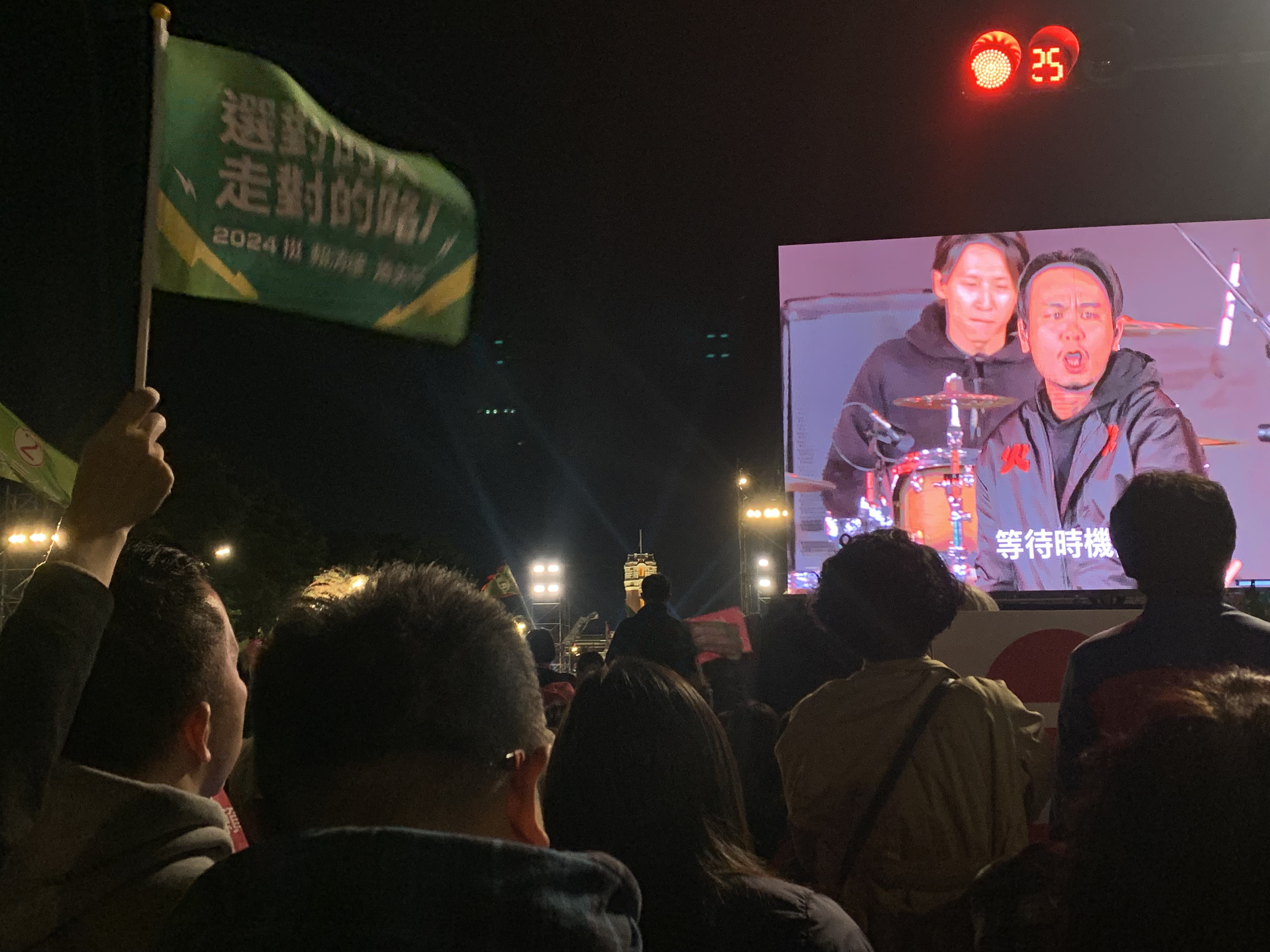
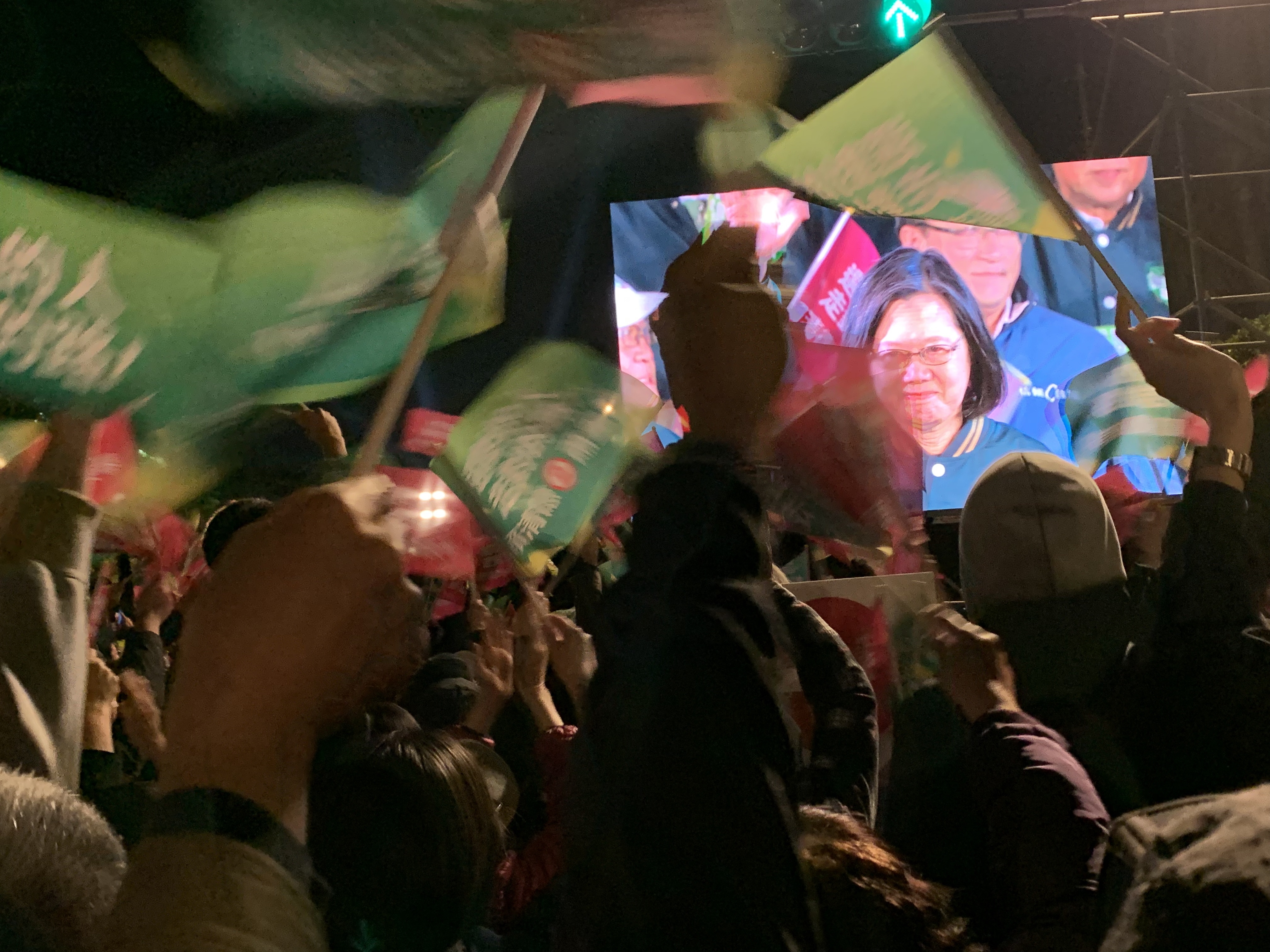
Basically, if the KMT is trying to appeal to its own base by running people like Jaw Shao-kang 趙少康(honestly don't even ask me what his preferred spelling is) and Han Kuo-yu to turn out the reactionaries, the DPP is leaning into the "progressive" part of the party's name, or at least the promise of it.
One could say that they're the more positive and optimistic party, as the KMT seems to mostly be in attack mode. That might not be entirely fair, however. It's a lot easier for incumbents to highlight their successes, if indeed they had successes (and the DPP has).
The fact that Lai is essentially running on Tsai's record shows not only that even though Tsai Ing-wen may no longer be at the height of her popularity, she's still more popular than previous outgoing presidents Ma and Chen. The DPP feels public faith in their tenure is strong enough to run on; maybe it will work, maybe it won't, but it's telling that they don't have to distance themselves from that record.
A combination of Lai Ching-te and Hsiao Bi-khim's names (美德, which means 'virtue') was frequently referenced, along with campaign slogans "choose the right people, take the right path" (選對的人,走對的路) and Team Taiwan (挺台灣), which comes with a whole sports theme.
President Tsai spoke toward the end, saying she realized that many young people felt she didn't do enough. She acknowledged that but pointed out that every step was a step forward. Hsiao Bi-khim re-iterated many of the previous points, adding that she was appreciative of all the female voices in the DPP and among its supporters, calling herself a "proud Taiwanese girl" (echoing the Fire EX song). Hsiao noted that despite Taiwan's difficult history, the world can now see that Taiwanese people don't give up. 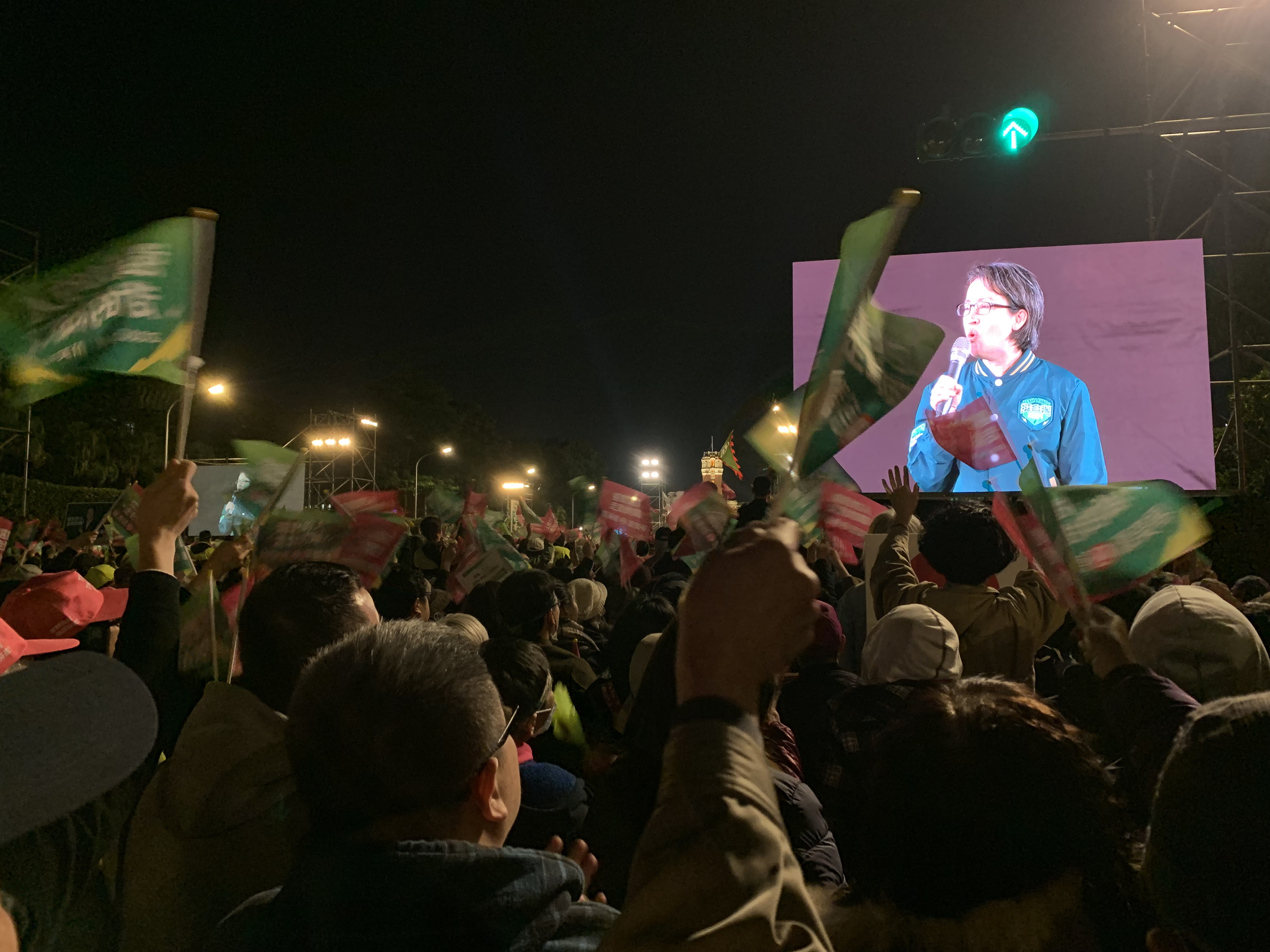
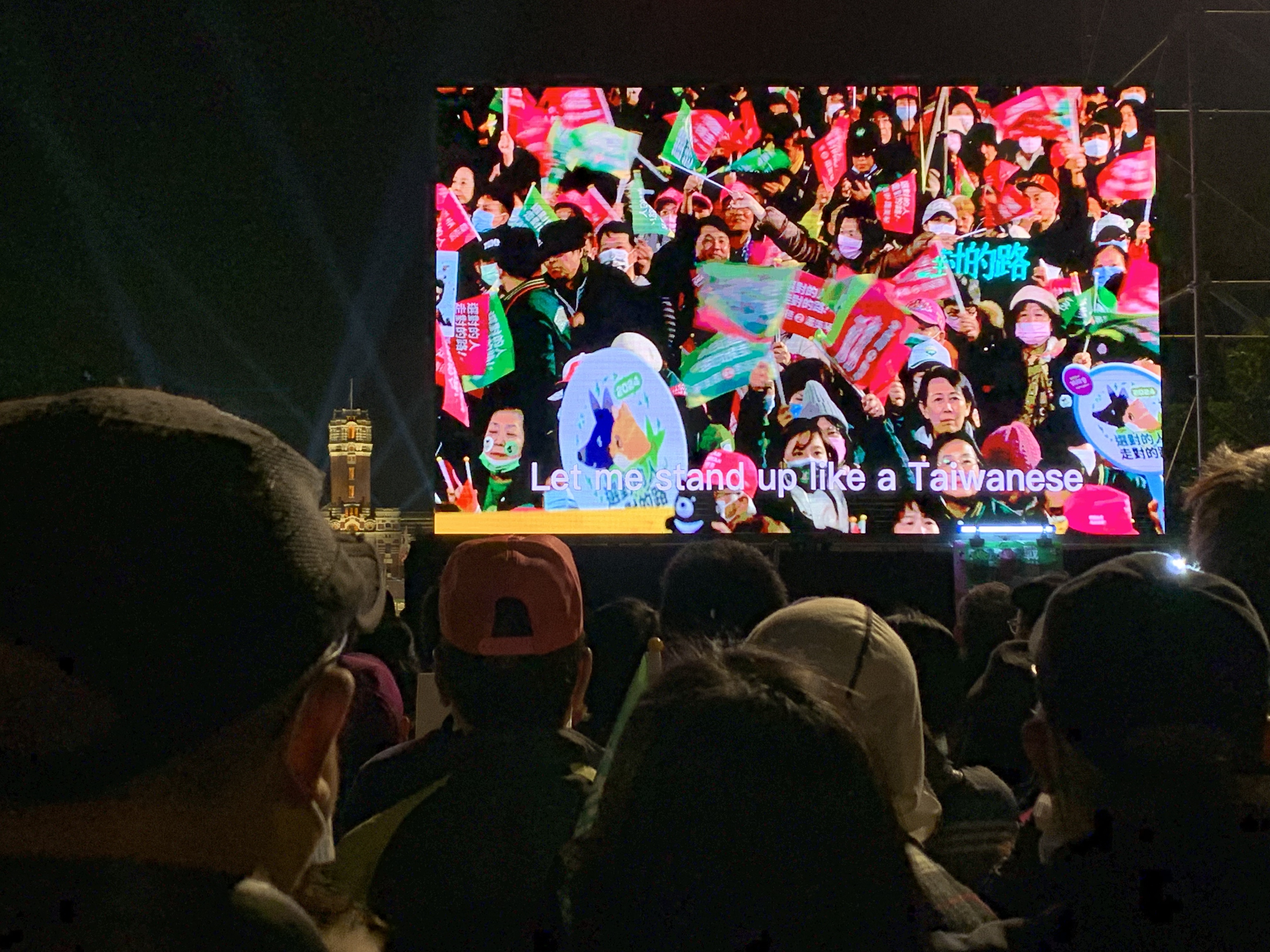
She also mentioned a minister in Pingtung? I'm not really sure, but it was the first time I've actually heard a word from my Taiwanese class (bok-su, or minister) used in the real world. So, that's cool.
To be honest, I had a metal screw drilled into my jaw on Monday and hadn't had painkillers since lunch, so I started to lose the plot by the time the big candidates took the stage.
I'm beginning to lose the plot again now, so I'll leave it there. 


